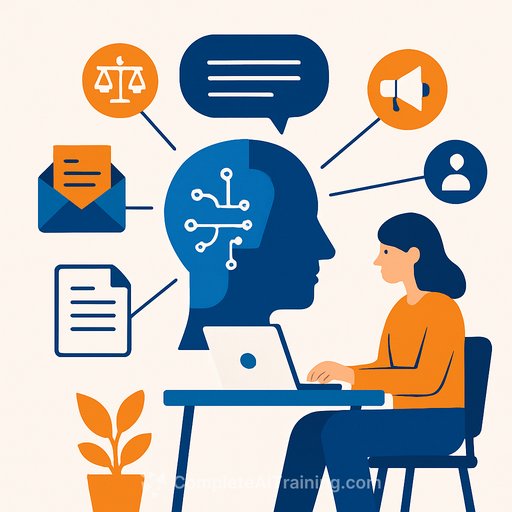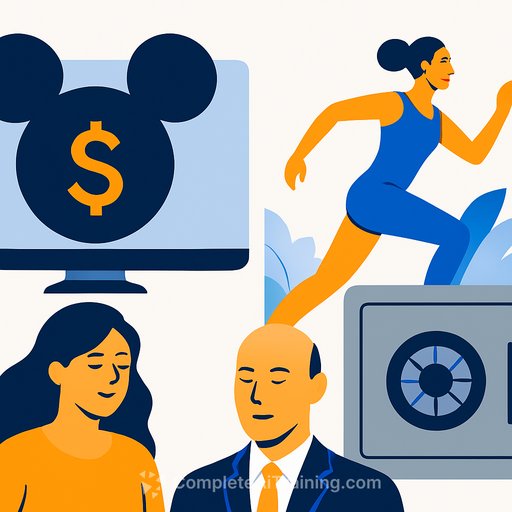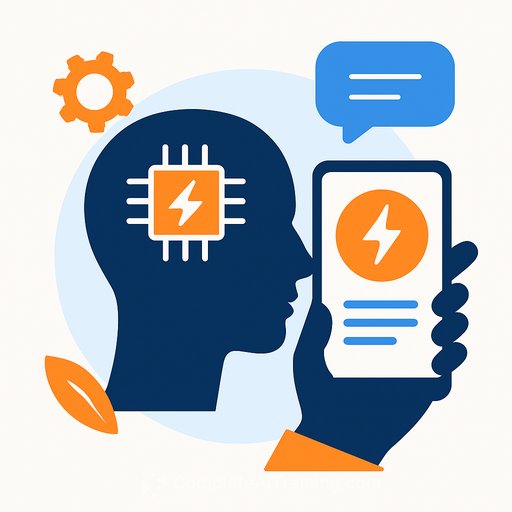How To Streamline Internal Communications And Craft Better Content: 20 AI Tips
Internal communications teams manage numerous priorities daily, making it tough to deliver timely, relevant messages to employees. Instead of pushing internal engagement aside, many professionals now use AI to automate routine tasks and improve content quality. These 20 practical tips show how AI can lighten your workload and help create more effective internal messaging.
1. Simulate Employee Reactions
Use AI to mimic how different employee personas might respond to your messages. This early feedback highlights tone, clarity, and emotional impact, helping you craft communication that resonates and includes all perspectives.
2. Use AI As A Thinking Partner
Combine AI with voice-driven workflows to draft messages quickly. Speaking your ideas aloud while AI captures tone and nuances speeds up writing and keeps your storytelling authentic and inclusive.
3. Automate Routine Tasks With Flows
Leverage AI tools like Copilot to create automated workflows that handle repetitive tasks—such as posting across channels based on triggers—saving time and ensuring consistent messaging.
4. Organize Thoughts And Workflows
AI can help structure your ideas and streamline your work process. Still, it's important to review estimated timelines as AI might misjudge task durations, especially without workflow experience.
5. Analyze Data And Predict Trends
Go beyond content creation by using AI for predictive analytics. Analyzing data from surveys, HR systems, and social media helps you anticipate employee needs and tailor messages for better engagement.
6. Draft A Baseline Marketing Plan
Save time by using AI to generate a marketing plan framework. This gives you a solid starting point to customize, eliminating the blank screen struggle when beginning new projects.
7. Turn Updates Into Ready-To-Share Messages
Feed long internal updates into AI assistants to create personalized versions for different departments. This avoids writing multiple versions manually while keeping content relevant to each audience.
8. Optimize Processes With Transcriptions
Record meetings or work sessions, narrate your steps aloud, and upload transcripts to an AI model. Ask for ways to optimize your process, gaining actionable ideas to improve efficiency.
9. Leverage AI Writing Assistants
Use AI to draft or customize newsletters, announcements, and policy updates. This maintains tone consistency and clarity while freeing your team to focus on strategic tasks.
10. Auto-Draft Routine Communications
Train AI on your past messages and tone guidelines to generate first drafts of updates, FAQs, or onboarding content. This reduces repetitive writing and ensures consistent messaging.
11. Translate Company Narrative Into Actionable Content
AI can help transform your company story into engaging emails, newsletters, or announcements. It also assists in gathering and summarizing employee feedback to inform your content.
12. Track Content Engagement
Use AI to monitor how employees interact with internal content, like email opens or survey responses. Real-time analytics enable you to optimize and personalize messages for better relevance and impact.
13. Train A Custom GPT On Your Brand Voice
Create a custom AI model trained on your brand’s tone and past communications. It can draft emails or campaign copy that sounds like your team, saving time and improving consistency across channels. Learn more about custom GPTs here.
14. Streamline Tasks Within Clear Frameworks
Use AI to automate routine work, but always maintain transparency with employees about AI involvement. Ethical use and clear communication protect trust and respect the human judgment essential to effective messaging.
15. Create Brand-Appropriate Visuals
AI can assist in producing graphics, images, and videos that align with your brand and enhance internal content. These visuals help engage and motivate employees beyond just words.
16. Personalize Follow-Up Messages
AI can identify who hasn’t read a message and help craft personalized follow-ups. This is especially helpful in teams where writing isn’t a core skill, boosting both efficiency and message impact.
17. Summarize Meetings Into Action Items
Use AI to convert lengthy meetings into concise bullet points and clear next steps. This keeps everyone aligned and saves your team hours of note-taking and review.
18. Categorize And Tag Content For Easy Search
AI can automatically tag and organize Slack threads, emails, and intranet posts. This improves knowledge sharing and reduces repetitive questions by making information easier to find.
19. Analyze Large Volumes Of Employee Messages
Export anonymized chat logs from platforms like Slack or Teams and use AI to identify common questions and themes. This insight helps you create targeted content that addresses what employees really want to know.
20. Segment Employee Audiences And Analyze Engagement
AI can segment employees by role, department, or location and generate customized messages for each group. It also analyzes engagement data to refine content that resonates best with different audiences.
Integrating AI in internal communications frees up time, improves message relevance, and boosts engagement. For those interested in learning more about AI tools and practical applications in communications, explore Complete AI Training’s courses by job role.
Your membership also unlocks:






